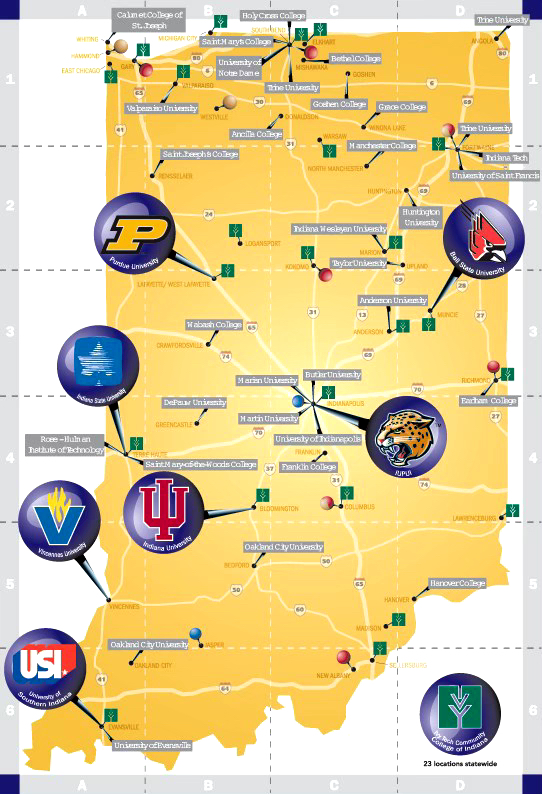For the first time in a while, Rensselaer is replacing AP English classes with Dual Credit courses through IU. There are three different dual credit courses in our English department. The three different classes are advanced composition, advanced speech and communication, and advanced language. Our classes are taught by Mr. Sell and Mrs. Sterk.
We sat with Mrs. Sterk, and asked her to answer some key questions about dual credit versus advanced placement classes. She teaches our Dual Credit Speech through IU. We started off by asking the differences between the two, to which she answered, “Dual credit is an actual college course, which is done through IU. As long as your grade is above a C, you can get credit. AP is more of a critical thinking course. At the end of AP, you take a test, and with a certain score you can get college credit for it.” The thing about AP is that even if you pass your test with a perfect score, some colleges don’t even look at it. She says she likes teaching this course because, “IU Speech is not a typical speech class. It challenges students to look at real-world, difficult issues; these students have to talk about these issues in meaningful ways, which will make them better citizens.” She spent a week down in IU learning about the course, and she is also enrolled in her second masters program to get her masters in English. She has to do a two-day training in the fall at IU for Speech.
We also sat down with Mr. Sell and ask him the same questions. We then questioned him on what class he teaches and he said, “I teach W131 (analytical writing) in the fall and L202 (literature) in the spring.” We then asked him the differences between AP and Dual Credit. Mr. Sell stated, “Dual Credit guarantees college credit (if one gets a C or higher) through IU whereas AP grants credit contingent on getting certain scores on the AP test.” He enjoys teaching this class because since it is literally a college course, he can “let the dogs off the chain, difficulty-wise.” At last, we asked him what different kinds of training he has gone through. Mr. Sell said, “I went through a week-long course with IU professors for each course I teach. It was very intense, but also rewarding.”
We also sat down to talk with two students enrolled in dual credit classes; we spoke with Seniors Delaney Koebcke and Beck Doughty. We started off by asking how it’s different from AP, and she said it is different because it’s a college level course, it will earn her a credit on her college transcript. She also likes this class because “There is also no AP exam.” She said “Dual credit has been offered to me by our counselors since I started high school.” We asked how she will use this to benefit her future, and she said “I will use the dual credit English class that I am currently enrolled in to earn credit for my college education and they will transfer my grade to any IU college so that I do not have to retake the course after graduating.”.
Beck Doughty is taking IU English W131: Reading, Writing, and Inquiry. We asked him the same set of questions. He informed us that dual credit courses are more structured and a lot less forgiving. They require much more personal time and effort. He said “Dual credit courses are more structured, and our teachers are instructed on how to teach the course. These classes are much less forgiving, and require you to put in more work on your own time.” He has taken honors and AP English classes since his freshman year. “So, when I found out that we had a dual credit course, I decided that it was going to be worth the exposure to a college level class.” This class is better preparing him for college life. He says, “I can already say that I am learning how to write more analytically and academically. I will be more prepared for college life, and be more equipped for my professional life.”




















